What is a Visiting Workshop ?
Earth Tree visits schools and local communities to give workshops. Based on what is happening in our working areas, and the experience we have acquired, we have created workshops and teaching materials to have the participants learn and think about different issues in the world. We also use the materials created by other organizations such as DEAR, and the methods of experts in the development field. Invite us to your schools, local communities, and various citizen’s groups!
What do we aim at by conducting visiting workshops ?
To empower people to learn, think, and to take action together.
- The purpose is to let people know the lifestyles of the people in the regions supported by Earth Tree, and to deepen the understanding of cultures and values that are different from our own.
- We conduct workshops so that the participants may understand easily and may think together about structural issues such as disparities and injustice in economy and education; environmental destruction caused by development; and violation of human rights. These are the factors that lead to global issues.
- All the participants will share the issues, regard them as their own, then we can work together and try to solve these problems.
What kind of workshops are there ?
Magical Banana v3
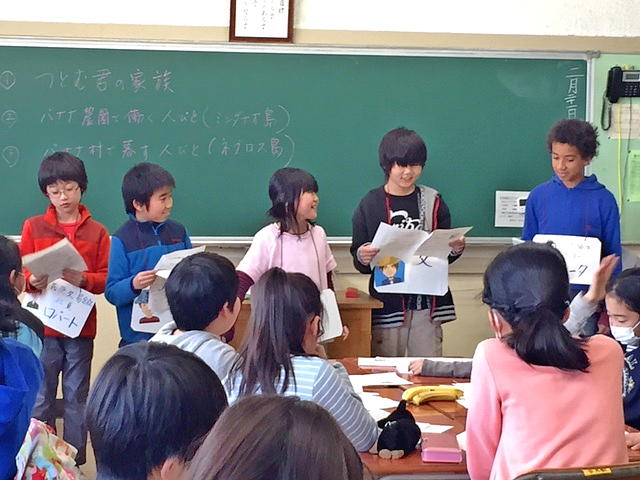
Why is the price of bananas so low?
By putting yourself in the position of a banana worker through performing a mini play, you will find out the answer to this question. In this workshop, we introduce the bananas that are naturally grown on Negros Island in the Philippines, where we previous worked in. We have the participants think about an alternative way of trade called “People to People Trade”, where banana growers and consumers support each other.
By learning about the world behind a single banana, we will learn how our behavior as consumers, such as buying and eating, affect the rest of the world, and think how our society should really be.
Related SDGs Goals

No.10
Reduced Inequalities

No.12
Responsible Consumption and Production

No.17
Partnerships for the Goals
Laos Protect the Forests, Protect the Livelihood
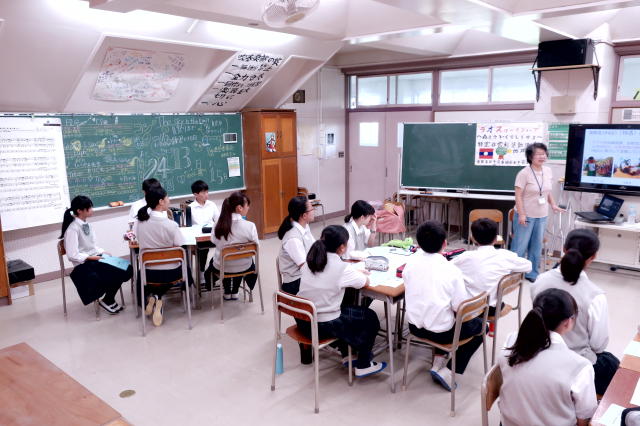
The forests of Laos are said to be supermarkets. Villagers gain a lot of things from the forests, such as food, building materials, and fuel. After learning about the life in a Laotian village, in harmony with nature, we will reflect on our own way of life here in Japan.
Which is true wealth, “economic development” for the few people obtained by destroying the forests, or the “abundance” the villagers felt by getting products from the forests? What is true wealth? “Economic development” that makes forests disappear, or “living with nature?
Related SDGs Goals

No.15
Life on Land

No.12
Responsible consumption and production
Nepal Family Game of the Tharu People
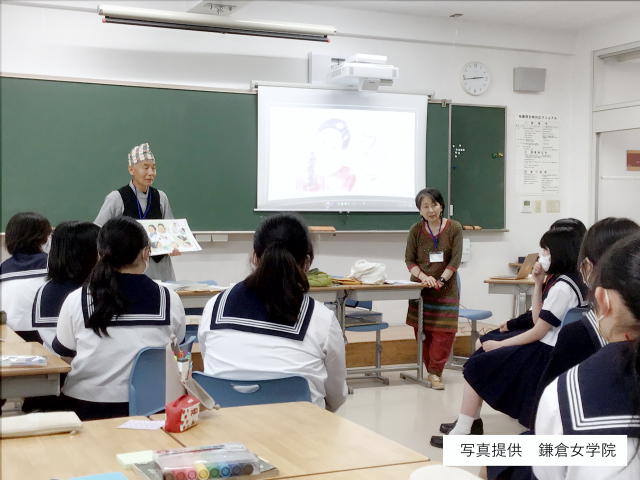
Earth Tree supported women’s literacy classes in the Far-western part of Nepal and turned this experience into a workshop. You will become a member of a family of an indigenous family and experience illiteracy.
What it is like to be unable to read?
What are the benefits of being able to read and write? Those of us living in Japan will learn about “literacy”, something we aren’t usually aware of.
Related SDGs Goals

No.4
Quality Education for All

No.1
No Poverty

No.5
Gender Equality
Nepal Waku-Waku Workshop
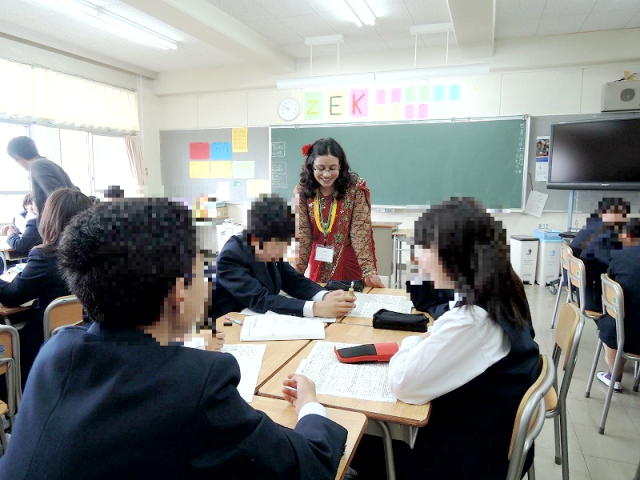
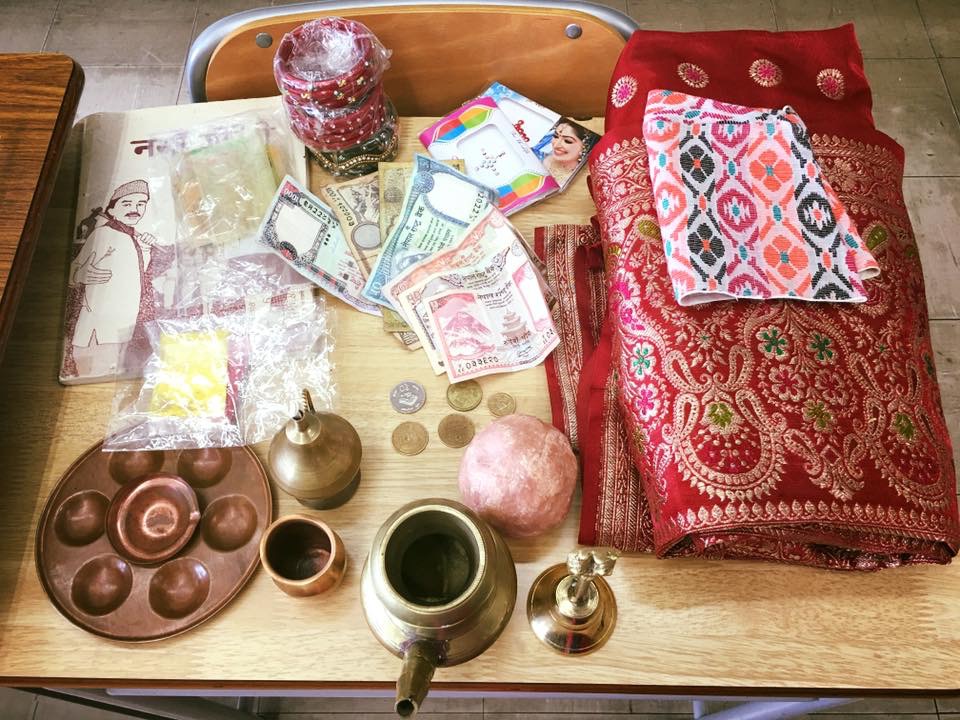
Put your hand into a Nepalese bag, and take out one of the daily goods used in Nepal, such as beautiful, embroidered fabric and shiny, metallic article. “What is this used for?” You will imagine the life of Nepalese people by touching and smelling them. In addition, we will think about the importance of education through a picture-story show based on what we experienced during our activities.
Related SDGs Goal

No.4
Quality Education
Our Future Dining Table
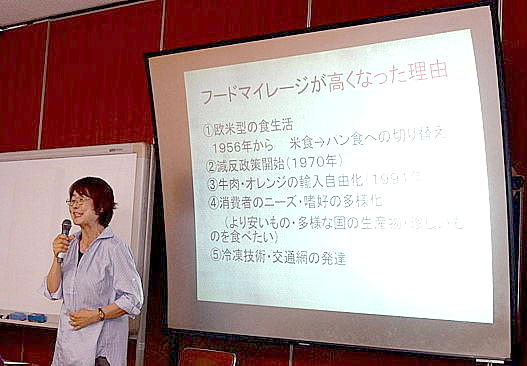
Our daily tables are filled with food imported from all over the world.
How far does our food travel before reaching us? In this workshop, we calculate “food mileage” of our everyday menus. As our diet depends a lot on other countries, we should think of our future food issues linked to the world and think what we can do from now on? At the same time, we should also know that our eating habits have a great impact on other countries and food producing countries.
Related SDGs Goal

No.2
Zero Hunger

No.12
Responsible Consumption and Production
Voices of the Voiceless
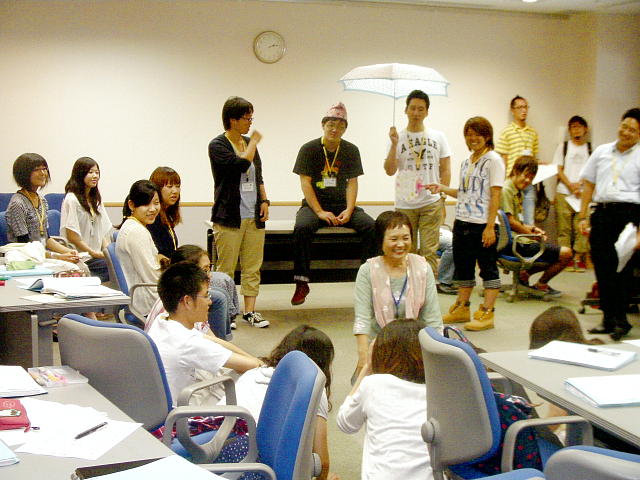
Role playing the people in a Nepalese village, the participants will experience the structure and inequalities that exist in the village. They will also experience PRA (Participatory Rural Appraisal), a way in which programs are conducted with the participation of the residents. We will learn the importance and the method of hearing the voices of vulnerable people, who otherwise have difficulty speaking out. This participatory way of empowering people by finding out the good point of each individual, is useful not only in the development field but also in schools, communities, and organizations.
Related SDGs Goal

No.10
Reduced Inequalities

No.1
No Poverty




